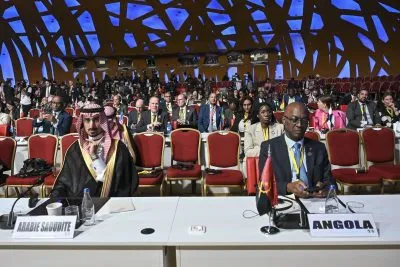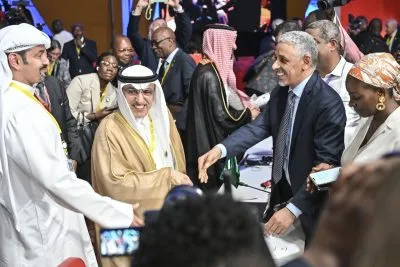One of Africa’s most enduring telecoms monopolies is set for dramatic change in March, when the Ethiopian government grants two new spectrum licences in a bid to liberalise the long-restricted sector.
A 40% stake in state-owned Ethio Telecom – the sole mobile services provider in a country of 112m people – will also be sold as mobile network operators hunt for exposure to one of Africa’s final frontiers of potential growth.
Among the telecoms operators expected to table bids for the two licences by 5 March are MTN, Orange, and a Vodafone-led Global Partnership for Ethiopia, which secured a conditional loan of up to $500m in December from the US International Development Finance Corporation (DFC), subject to the consortium winning one of the 15-year licences.
The sales are part of prime minister Abiy Ahmed’s economic reform programme to raise Ethiopia to middle-income status by 2025. The government’s war against the Tigray People’s Liberation Front (TPLF) in northern Ethiopia appears to have done little to dampen the interest of global operators. And while most sectors have struggled during the pandemic, Covid-19 has reasserted the significance of telecommunication services as the backbone of the national communication system, education sector and healthcare delivery.
Ethiopia’s demographics remain attractive for operators. GDP per capita has more than doubled in the last 10 years, and increasing numbers of customers have access to discretionary income. A fourth entrant into the sector will not be considered for at least 10 years, providing a generous time-scale for the winners to cement their advantage.
“The partial privatisation and the liberalisation combined are definitely the deal of the century,” says Brook Taye, senior adviser to Ethiopia’s finance and economic development ministry. “This is the last frontier in terms of telecom liberalisation. Most other countries have done this quite a while ago, so we expect a significant amount of revenue from this, which will mean two things.
“For the government, additional revenue will allow us to have more freedom in terms of spending a significant amount of capital on infrastructure development, and for consumers, choice will drive entrepreneurship and facilitate the ease of doing business.”
The bidders
The stake in government cash cow Ethio Telecom, which has over 44m subscribers and recorded a 31.4% rise in revenues in the 12 months to June 2020, is seen as particularly attractive. The operator raked in over $1.3bn in revenues over the course of the last fiscal year, but the lack of competition has resulted in a record of poor service compared to other operators on the continent.
The UN International Telecommunication Union’s 2017 ICT Development Index ranked Ethiopia’s service at 170 in the world out of 176 countries, and the Alliance for Affordable Internet ranked the country 60 out of 61 in 2019.
The prospective entrants will be expected to extend network coverage to 25% of the country within 12 months, rising to 40% a year later. The sale of 40% of the state operator – and an additional 5% public float – is being overseen by Deloitte.
Meanwhile, the International Finance Corporation (IFC), the World Bank division that lends to the private sector, is managing the sale of the two new spectrum licences.
Read our special report on African telecoms
The Ethiopian Communications Authority said in June that 12 bids had been received from nine telecom and two non-telecom operators. The Global Partnership for Ethiopia consortium featuring Vodafone, Vodacom and Safaricom is competing with MTN, Orange, UAE’s Etisalat and Saudi Telecom Company.
Kenya’s market leader Safaricom, which estimated last year it would have to pay about $1bn for a new licence, is looking for new markets after reaching saturation in its domestic voice business and recording its first decline in net profit year-on-year since 2012 at flagship mobile money service M-Pesa.
Other contenders including the Malagasy group Axian, Telkom South Africa, Liquid Telecom, Snail Mobile, Kandu Global Telecommunications, and Electromecha International, are expected to place final bids, with the winners to be announced within 14 days of the auction’s close. The entrance of the mobile network operators could just be the beginning of the sector’s transformation, say analysts.
“Beyond just giving out those licences, the kind of other developments following up will be huge,” says Alexander Demissie, director of the China Africa Advisory.
“I’m talking about data centres, online businesses. So many other parts of the economy will wake up to this change, and the state monopoly wouldn’t have managed to do it. The competition will help the economy to grow even further and there are estimates that liberalisation will add one or two percentage points onto the GDP, once the whole system is functioning.”
Continuing restrictions
Nevertheless, there will be substantial restrictions on the new operators. Winning bidders will have to lease telecoms towers – the crucial infrastructure underpinning the network – from Ethio Telecom, or build it themselves. The new entrants currently can’t invite third parties to build new infrastructure, as is common throughout Africa.
In a November interview with African Business, Kash Pandya, CEO of London-listed owner and operator Helios Towers, expressed an interest in doing business in Ethiopia, but conceded that the opportunity may not arise until the second half of 2021.
Pandya says that a conducive regulatory environment will need to be offered by Ethiopia to international mobile network operators before “we go there and invest hard dollars,” and mobile tower licences will need to be made available.
However, Ethiopia’s plans to double mobile towers to roughly 14,000, requiring an additional investment of $1.1bn as it builds out a fibre-optic network and creates high-speed connectivity, are eventually likely to require substantial input from foreign firms. Chinese telecoms equipment suppliers are already making their move in anticipation – Huawei, a major supplier to the Ethiopian government, has an office in Addis Ababa.
“The Chinese actors understand exactly the development needed, the huge work to be done, and they see a lot of business coming up,” says Demissie.
In another major restriction on potential earnings, new entrants also won’t be able to offer mobile banking services – a substantial revenue driver for major African telcos. Ethiopian law stipulates that only “locally owned nonfinancial institutions” are allowed to operate mobile money transfer systems in the country.
There are signs that Ethiopia is taking small steps towards financial liberalisation. Kenya’s Equity Bank and KCB have been allowed to set up offices in the country, there are plans to launch a domestic stock exchange, and the private sector is being encouraged to invest in fintech companies.
Telcos willing to play the long game may eventually be able to offer mobile money services, but there are no guarantees. Still, the huge opportunity offered by the opening of a new market of over 112m means that would-be bidders are unlikely to be deterred and may gamble on their ability to influence the future shape of the market.
“Whoever is entering that space will have a field day, great market penetration and they will dictate how the nascent Ethiopian market will develop in the next decades,” says Demissie.
Want to continue reading? Subscribe today.
You've read all your free articles for this month! Subscribe now to enjoy full access to our content.
Digital Monthly
£8.00 / month
Receive full unlimited access to our articles, opinions, podcasts and more.
Digital Yearly
£70.00 / year
Our best value offer - save £26 and gain access to all of our digital content for an entire year!

 Sign in with Google
Sign in with Google 



